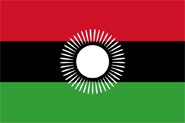Saving Lives, Protecting Agriculture Based Livelihoods in Malawi (M-Climes)
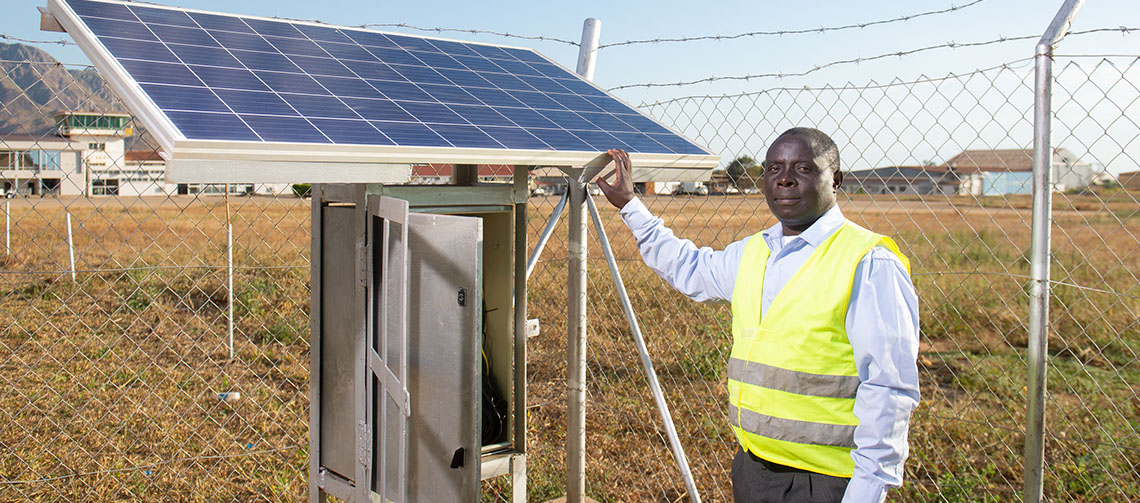
Saving Lives, Protecting Agriculture Based Livelihoods in Malawi (M-Climes)
Climate change severely threatens sustainable development opportunities for Malawi. The country faces a number of climate-induced disasters including floods, droughts, stormy rains and strong winds. The intensity and frequency of climate-related hazards have been increasing in recent decades, due to climate change as well as other factors like population growth, urbanization and environmental degradation. Farmers and rural populations have been amongst the most affected. The impacts of climate hazards have severely disrupted food production, led to the displacement of communities, loss of life and assets, and caused an overall reduction of community resilience.
The “Saving Lives and Protecting Agriculture Based Livelihoods in Malawi: Scaling Up the Use of Modernized Climate Information and Early Warning Systems” (M-Climes) project will support the Government of Malawi to take important steps to save lives and enhance livelihoods at risk from climate-related disasters. The project focuses on Malawi’s technical, financial capacity, and access barriers related to weather and climate information (CI). These barriers will be addressed by investing in enhancing the hydro-meteorological capacity for early warnings (EWs) and forecasting; developing and disseminating tailored products for different actors (including smallholder farmers and fishers); and strengthening capacities of communities to respond to climate-related disasters.
Output 1: Expansion of networks that generate climate-related data to save lives and safeguard livelihoods from extreme climate events
Output 2: Development and dissemination of products and platforms for climate-related information/services for vulnerable communities and livelihoods
Output 3: Strengthening communities capacities for use of EWS/CI in preparedness for response to climate related disasters
Project Overview
Climate change severely threatens sustainable development opportunities for Malawi. The country faces a number of climate-induced disasters including floods, droughts, stormy rains and strong winds. The intensity and frequency of climate-related hazards have been increasing in recent decades, due to climate change as well as other factors like population growth, urbanization and environmental degradation. Farmers and rural populations have been amongst the most affected. The impacts of climate hazards have severely disrupted food production, led to the displacement of communities, loss of life and assets, and caused an overall reduction of community resilience.
The “Saving Lives and Protecting Agriculture Based Livelihoods in Malawi: Scaling Up the Use of Modernized Climate Information and Early Warning Systems” (M-Climes) project will support the Government of Malawi to take important steps to save lives and enhance livelihoods at risk from climate-related disasters. The project focuses on Malawi’s technical, financial capacity, and access barriers related to weather and climate information (CI). These barriers will be addressed by investing in enhancing the hydro-meteorological capacity for early warnings (EWs) and forecasting; developing and disseminating tailored products for different actors (including smallholder farmers and fishers); and strengthening capacities of communities to respond to climate-related disasters.
Project Details
Climate change severely threats sustainable development opportunities for Malawi. The country faces a number of climate-induced disasters including floods, droughts, stormy rains, and strong winds. The intensity and frequency of climate-related hazards have been increasing in recent decades, due to climate change as well as other factors like population growth, urbanization and environmental degradation. Farmers and rural populations have been amongst the most affected. The impacts of climate hazards have severely disrupted food production, led to the displacement of communities, loss of life and assets, and caused an overall reduction of community resilience.
The “Saving Lives and Protecting Agriculture based Livelihoods in Malawi: Scaling Up the Use of Modernized Climate Information and Early Warning Systems” project will support the Government of Malawi to take important steps to save lives and enhance livelihoods at risk from climate-related disasters. The project focuses on Malawi’s technical, financial capacity, and access barriers related to weather and climate information (CI). These barriers will be addressed by investing in enhancing the hydro-meteorological capacity for early warnings (EWs) and forecasting; developing and disseminating tailored products for different actors (including smallholder farmers and fishers); and strengthening capacities of communities to respond to climate-related disasters.
The project is aligned with the Government of Malawi's national strategies such as the Malawi Growth and Development Strategy and the National Adaptation Programme of Action (NAPA). The design of the project followed extensive stakeholder consultations. This process allowed the project to gain the support of the relevant stakeholders including the community members from targeted districts, the civil society and local and international NGOs. The project is also supported by the pertinent government ministries and departments and local government with local offices in the targeted districts (DCCMS, DWR, MoAIWD).
Approximately 1.4M direct and 0.7M indirect beneficiaries (total 12% of the population) will gain access to critical weather information as a result of the project. It will reduce vulnerability of lives and livelihoods, particularly women’s, to impacts of climate change and extreme weather events. In addition, it will increase the resilience and enhance livelihoods of the most vulnerable people communities and regions.
News
Protecting Malawi with climate information and early warning systems, published by the Green Climate Fund, December 2019
Strengthening climate information in food insecure districts in Malawi
Henry Msiska is a 49-year-old Lead Farmer from Mziliwanda village in Nchenachena in the northern district of Rumphi. To Msiska, delayed onset of rains is undoubtedly the biggest challenge in his agri-business. “I remember some years back, the rainy season used to start in November and last in April or May. But nowadays, the rain would start in December and end even before March,” observes Msiska. Due to this unpredictability of the present-day rainfall patterns his crops have been subject to new pests and diseases, a development that has drastically been reducing his farm yields. Despite growing more climate-resilient crops, it has still been very difficult for him to put more focus on them (crops) due to the changes in the climatic conditions. Msiska is not alone in this predicament as this phenomenon affects thousands of other farmers across Malawi. However, with the use of tailored-weather information and advisories, that he and other community members are expected to be receiving through mobile phones, print and radio channels, under the M-CLIMES Project, such challenges are expected to be a thing of the past. The M-CLIMES Project, which is being implemented with funding from the Green Climate Fund (GCF) aims at increasing the farmers’ adaptive capacity and their decision-making through timely provision of climate-related risks information.
UN support enhances delivery of improved weather services in Malawi
The Department of Climate Change and Meteorological Services has said UN capacity building support to the department has improved their capacity to generate, analyse and disseminate weather information in the country. The department’s deputy director Rodrick Walusa said this on 27th July 2018 when the UN Resident Coordinator, Maria Jose Torres, visited their offices in Blantyre to appreciate impact of UN support to the department. “UNDP has provided us with support to improve our infrastructure for handling weather information,” said Walusa. “We have transformed many of our weather stations into automated ones. With UNDP support, 10 automated weather stations have been fully automated and additional 33 automated weather stations are being procured by UNDP for installation in some of the remaining sites across the country.”
Farmers and fishers benefiting from digitized weather data in Malawi
The exercise which is set to run for 17 days is being conducted in Zomba District under the Green Climate Fund (GCF) funded ‘Saving lives and Protecting Agriculture-based Livelihoods in Malawi: Scaling up the use of Modernized Climate information and Early Warning Systems (M-CLIMES), being implemented by the Department of Disaster Management Affairs (Dodma).
The DCCMS Chief Meteorologist, Mr. Fred Kossam, said that the digitization of climate data is expected to bring many benefits to Malawi and will provide a fundamental building block for climate change adaptation and disaster management in the country by improving the accuracy of seasonal rainfall forecast.
The positives of preparing for disaster
Knowledge is power. In terms of climate change, this translates into using a growing understanding of how rising global temperatures lead to localised weather disasters. This improved knowledge can help reduce the physical and social devastation of climate change by providing early warning...
While the landlocked nation of Malawi is highly susceptible to droughts, it also provides an example of how flooding can pose a problem for a number of African countries – even those located far from coastlines. Lake Malawi, one of the largest lakes in the world, is a central geographical and economic feature of the country. A GCF project in Malawi being implemented by the United Nations Development Programme (UNDP), a GCF Accredited Entity, is installing automatic weather stations and lake-based weather buoys to increase the capacity to identify and forecast flood risks.
A major component of this USD 16.3 million early warning project is ensuring that climate information is transmitted to vulnerable farming and fishing communities around the lake. The sharing of climate information to the right people is a key part of all effective early warning systems. In the case of the Malawi project, this will include making sure affected communities know what to do with enhanced weather information. The capacity of local communities, district councils, and national agencies to respond to emergencies will be strengthened through training and improved emergency services.
Malawi's farmers watch climate change
Malawi: Illiteracy Levels Affecting Meteorological Services
Department of Climate Change and Meteorological Services has attributed its information communication dissemination challenge to high illiteracy levels in the country, saying people fail to instantly understand the information they present at once. Amos Ntonya, a Meteorologist in the Department of Climate Change and Meteorological Services said this on Tuesday during a meeting organised to sensitise Nkhotakota District Executive Committee on 'Saving Lives and Protecting Agriculture-based Livelihoods in Malawi: Scaling up the Use of Modernised Climate Information and Early Warning Systems (M-CLIMES)' Project.
Maravi Post
The Department of Disaster Management Affairs (DODMA) in conjunction with the United Nations Development Programme (UNDP) will embark on scaling up the use of modernised climate information and early warning systems (M-CLIMES) Project aimed at reducing vulnerability of communities to climate change. Briefing the District Executive members (DEC) in Mchinji on Friday, Project coordinator of M-CLIMES DODMA, Rabi Narayan Gaudo, said the six year project (2017-2023) will target two million beneficiaries including farmers, fishermen and flood-prone communities. “The Information Systems Programme will help reduce vulnerability to climate change impacts on lives and livelihoods, particularly of women, from extreme weather events and climate change, and strengthen community capacities in preparedness for response to climate related disasters,” he said. Gaudo said through the project, automated weather stations will be installed in 19 districts, automated rain gauges will be installed for enhanced community early warnings, and all 21 districts will benefit from improved accurate and reliable climate weather forecasts for agriculture.
New climate project to support 3 million Malawians
4 October 2017, Lilongwe
The Government of Malawi, through the Department of Disaster Management Affairs (DoDMA) and with support from the United Nations Development Programme (UNDP), has officially launch a new project to scale up the use of modernized early warning systems and climate information across 21 of the country’s 28 districts. The project called Saving Lives and Protecting Agriculture-based Livelihoods in Malawi: Scaling Up the Use of Modernized Climate Information and Early Warning Systems (M-CLIMES), is co-financed by the Green Climate Fund (GCF), a global fund created to support efforts of developing countries to respond to the challenge of climate change. The M-CLIMES project will reach an estimated three million people in the country with lifesaving early warnings, and improve the monitoring, packaging and distribution of valuable climate information that can save lives, protect livelihoods, and inform decision-making on development plans.
Scaling Up the Use of Modernized Climate Information and Early Warning Systems in Malawi
New UNDP-Supported Project Funded by the GCF Works to Reduce Vulnerability to Climate Change Impacts
By Srilata Kammila
A recently approved project supported by the UNDP and funded through the Green Climate Fund is providing new opportunities to scale up the use of climate information and early warnings in Malawi. The innovative $11 million project focuses on building weather- and climate-related services and has the potential of reaching approximately 2 million people, providing farmers, fishers and communities impacted by a changing climate with the information they need to protect lives and build livelihoods. This includes investing in the use of climate information for planning agricultural and on-farm activities, providing warnings of severe weather for fishers on Lake Malawi, improving flood forecasting and monitoring, and fostering information exchanges through mobile platforms....
Country Initiatives
Key Results and Outputs
Output 1: Expansion of networks that generate climate-related data to save lives and safeguard livelihoods from extreme climate events
- Activity 1.1: Expanding coverage of Meteorological and hydrological infrastructure through installation of AWS, hydrological monitoring stations, lightning detection systems, and lake-based buoys.
- Activity 1.2: Capacity-building of hydromet staff on operations & maintenance, data analysis, modeling, and forecasting.
Output 2: Development and dissemination of products and platforms for climate-related information/services for vulnerable communities and livelihoods
- Activity 2.1: Develop tailored weather/climate based agricultural advisories for 14 food insecure districts and disseminate through ICT/mobile, print, and radio channels
- Activity 2.2: Develop and disseminate tailored warnings and advisories for fishing communities of Mangochi, Salima, Nkhata Bay and Nkhotakhota around Lake Malawi
- Activity 2.3: Develop and deploy the flood and water resource modelling and decision support system to enhance coverage for disaster risk and water resource management
- Activity 2.4: Enablea demand-based model for climate information and services stimulating private sector engagement
- Activity 2.5: Knowledge sharing and management for development, dissemination and use of EW and CI to enhance resilience
Output 3: Strengthening communities capacities for use of EWS/CI in preparedness for response to climate related disasters
- Activity 3.1: Scale-up community-based EWS in flood-disaster prone areas of Karonga, Salima, Dedza, Nkhotakota, Nkhata Bay, Rumphi, Phalombe and Zomba
- Activity 3.2: Capacity development of national, district and community level actors on disaster and climate risk management
Reports and Publications
PIFs
Monitoring and Evaluation
Project-level monitoring and evaluation will be undertaken in compliance with the UNDP POPP and the UNDP Evaluation Policy. The Project Manager that will be in charge of running the project on behalf of Department of Disaster Management Affairs (DoDMA) will be responsible for day-to-day project monitoring. S/he will develop annual work plans to ensure the efficient implementation of the project.
The UNDP Country Office will conduct, within other monitoring activities, annual supervision missions. The UNDP Country Office will be responsible for complying with UNDP project-level M&E requirements. Additional M&E, implementation quality assurance, and troubleshooting support will be provided by the UNDP Regional Technical Advisor as needed.
A Project Implementation Report (PIR) will be prepared for each year of project implementation. The Project Manager, the UNDP Country Office, and the UNDP Regional Technical Advisor will provide objective input to the annual PIR. The Project Manager will ensure that the indicators included in the project results framework are monitored annually well in advance of the PIR submission deadline and will objectively report progress in the Development Objective tab of the PIR. The annual PIR will be shared with the Project Board and other stakeholders.
An independent mid-term review (MTR) process will be undertaken and the findings and responses outlined in the management response will be incorporated as recommendations for enhanced implementation during the final half of the project’s duration.
An independent terminal evaluation (TE) will take place no later than three months prior to operational closure of the project. UNDP Country Office will include the planned project terminal evaluation in the UNDP Country Office evaluation plan, and will upload the final terminal evaluation report in English and the management response to the public UNDP Evaluation Resource Centre (ERC) (www.erc.undp.org).The MTR and TE will be carried out by an independent evaluator. The evaluation report prepared by the independent evaluator is then quality assessed and rated by the UNDP Independent Evaluation Office.



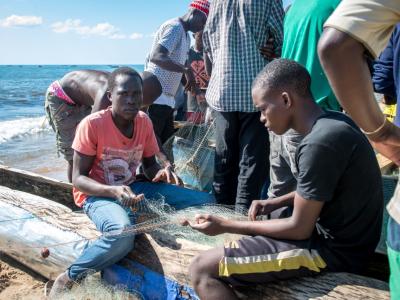 Farmers and fishers benefiting from digitized weather data in Malawi
Farmers and fishers benefiting from digitized weather data in Malawi 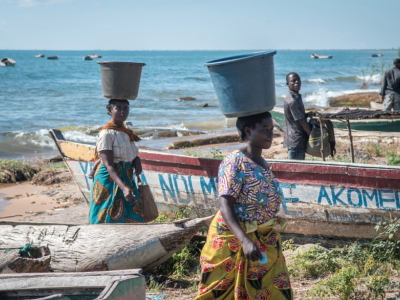 Malawi's farmers watch climate change
Malawi's farmers watch climate change 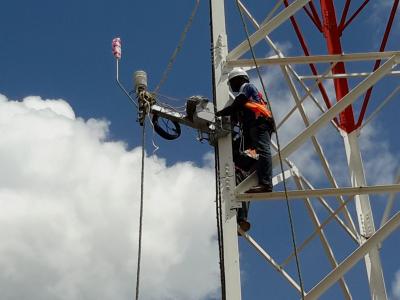 Data philanthropy will drive climate resilient development
Data philanthropy will drive climate resilient development 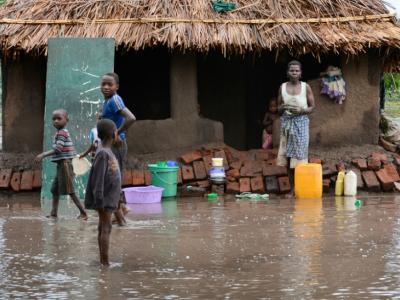 New climate project to support 3 million Malawians
New climate project to support 3 million Malawians 